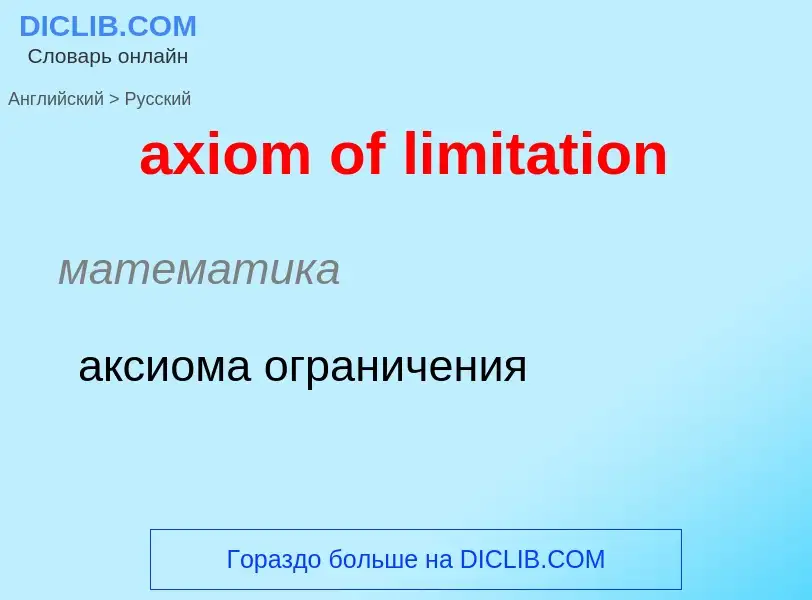Translation and analysis of words by ChatGPT artificial intelligence
On this page you can get a detailed analysis of a word or phrase, produced by the best artificial intelligence technology to date:
- how the word is used
- frequency of use
- it is used more often in oral or written speech
- word translation options
- usage examples (several phrases with translation)
- etymology
axiom of limitation - translation to russian
математика
аксиома ограничения
математика
аксиома выделения
математика
аксиома фундирования
Definition
.
Wikipedia

In set theory, the axiom of limitation of size was proposed by John von Neumann in his 1925 axiom system for sets and classes. It formalizes the limitation of size principle, which avoids the paradoxes encountered in earlier formulations of set theory by recognizing that some classes are too big to be sets. Von Neumann realized that the paradoxes are caused by permitting these big classes to be members of a class. A class that is a member of a class is a set; a class that is not a set is a proper class. Every class is a subclass of V, the class of all sets. The axiom of limitation of size says that a class is a set if and only if it is smaller than V—that is, there is no function mapping it onto V. Usually, this axiom is stated in the equivalent form: A class is a proper class if and only if there is a function that maps it onto V.
Von Neumann's axiom implies the axioms of replacement, separation, union, and global choice. It is equivalent to the combination of replacement, union, and global choice in Von Neumann–Bernays–Gödel set theory (NBG) and Morse–Kelley set theory. Later expositions of class theories—such as those of Paul Bernays, Kurt Gödel, and John L. Kelley—use replacement, union, and a choice axiom equivalent to global choice rather than von Neumann's axiom. In 1930, Ernst Zermelo defined models of set theory satisfying the axiom of limitation of size.
Abraham Fraenkel and Azriel Lévy have stated that the axiom of limitation of size does not capture all of the "limitation of size doctrine" because it does not imply the power set axiom. Michael Hallett has argued that the limitation of size doctrine does not justify the power set axiom and that "von Neumann's explicit assumption [of the smallness of power-sets] seems preferable to Zermelo's, Fraenkel's, and Lévy's obscurely hidden implicit assumption of the smallness of power-sets."



